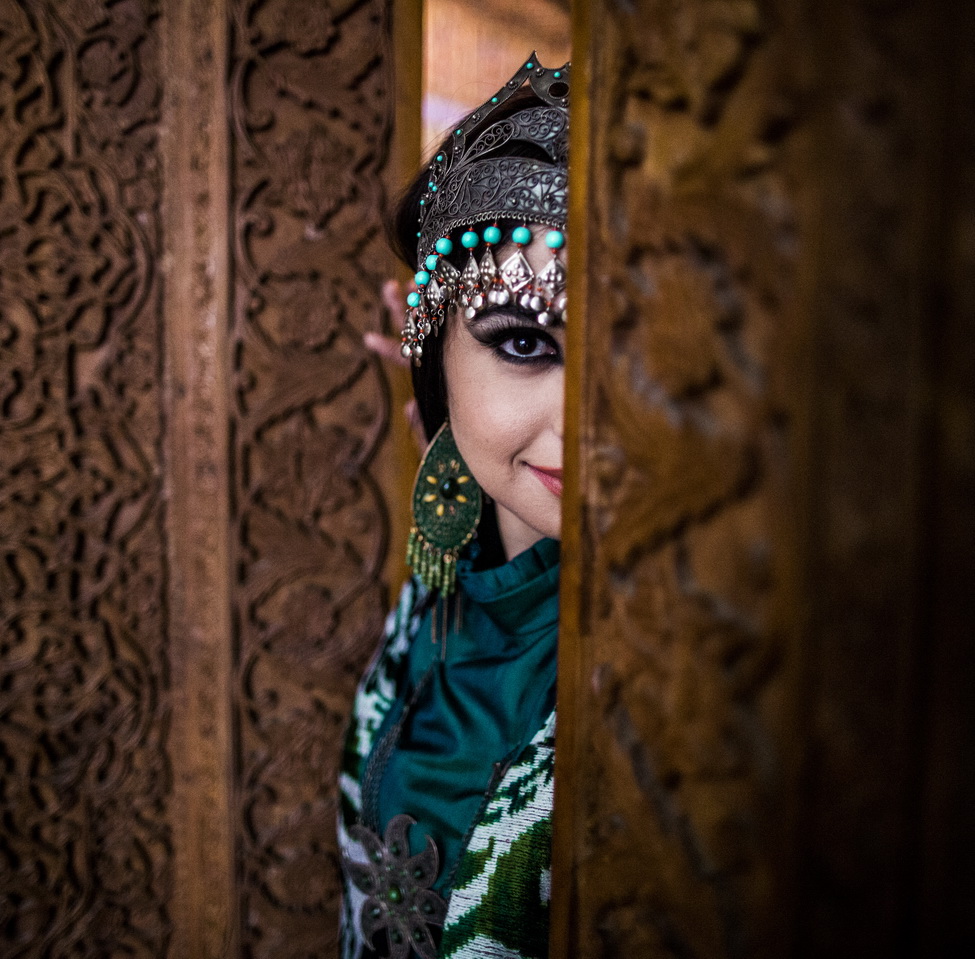-
Tours
-
Hotels
-
Guides
-
Services
-
Blog
Welcome to Uzbekistan!
From ancient times to the present day, the territory of Uzbekistan (Sogdiana, Khorezm, and Maverannakhr) has always been a place of amazing discoveries for guests of their land. Questions of security, freedom of movement of merchants and pilgrims were of the greatest importance for the rulers of all dynasties. The famous "oriental hospitality" here is not just words. This is the true folk philosophy that has come down to us through the centuries.
Today Uzbekistan invites guests to get acquainted with ancient monuments, cities of the Great Silk Road and feel the atmosphere of ancient eras. Enjoy the unique architecture of Samarkand, imbued with its glorious history! You will see the beauty of Bukhara, for centuries conquering the imagination of travelers! Visit the mysterious Khorezm and Khiva, the cradle of Zoroastrianism - it was here that the first Ghats of the sacred Avesta was written.

Uzbekistan inherited the grandeur of Tamerlane Imperium, the homeland of outstanding Central Asian researchers who promoted science progress on the global scope. Major Uzbekistan cities: Samarkand, Bukhara, Khiva & Shakhrisabz are enabled in the roster of the cultural UNESCO heritage. The Dark Ages attractions and coevals of antique Rome are precisely what attracts travelers to our land.
There are no antiquity buildings in Tashkent– most of them were destroyed by devastating earthquakes in 1866, 1868 & 1966. This city - the capital and metropolis, combining ultramodern architecture with a genuine eastern flair of its snug streets. The multinational inhabitants - more than 2.5 million people are famed for their cordiality. Tashkent is very loved by travelers for its special atmosphere; perhaps, there is no other city on Earth that would be missed so much.
Samarkand - the second-largest Uzbekistan city, but if we talk about the popularity - it can claim the right to be called first. In the ex-empires-capital, you can sense the ancient East’s soul, enjoy its turquoise-blue domes, to visit the famous Registan square. Poets & philosophers fell in love with it, found their inspiration here. They gave it the most flattering epithets - "Mirror of the World," "Universe Center", "Precious stone of Islam."
Shakhrisabz is one of the aged Uzbekistan city, it was a witness of the Alexander the Great & Roxana, daughter of a Sogdian merchant, marriage. It also saw the birth of the Middle Ages conqueror– Amir Timur and was the second capital after Samarkand. Exactly here preferred to relax the heirs of Timur's Empire, and built for this beautiful summer residence - Ak-Saray.
They say that Light comes from heaven upon all the towns of the world and only from Bukhara its rises. It is a cultural & tourist center glorious as Islam’s stronghold and many holy persons were buried here. The old Bukhara part was founded before Christ - it is a monument of ancient civilizations. City landmarks & their distinctive style recognizable in every planet corner is the Ark Fortress, Labi-Hauz ensemble, and many others.
The architecture of Khiva is unique and never could be confused with any other city; it is Museum under the stars. The initial story of the city bonded with Shem, the biblical Noah’s Son. Legends connect it with the spirits, who were Khiva patrons – believed that due to this the castle was impregnable to enemies. In the centenaries line, the city always was especial – the most hub of the Khiva Khanate & the Silk Road. Visiting renowned Ichan-Kala you can walk around all the important reminders of the early times.
With large interest, travelers explore the wonderful Fergana valley, located in the Eastern part of the country, and surrounded by mountains.
Old lush green trees, sycamore, poplar & oak - it’s all about garden-city Fergana. The modern city counts its history not so long ago, in the 19th centenary with the accession of Kokand Khanate to the Russian Empire. But the land itself has a lasting history. The Syrdarya River’s valley, surrounded by the Tien-Shan mountain chain it is excellent climatic conditions that attracted farmers since the Stone Age.
Kokand – its name as a reminder of the grandeur that was eminent for the Kokand Khanate, which reached its heyday in the 19th century. The dynasty founder laid the Eski-Kurgan fortification in the 18th centenary, and the city began to grow rapidly around. Kokand consists of two parts – old, which retains all historical remembrances, and new.
If you look at the map, Karshi seems quite small relative to its notorious brothers that do not detract from its significance. And the significance of it is a serious – city, which has existed for more than 2,700 years, was marked with two seals of the earliest times rulers – Alexander the Great & Tamerlane. Here also was formed a distinctive educational institution for women - Odin madrasah.
Today it is an independent & prosperous country with its path into the future. The independence brought returning to the roots of tradition & culture, to revive it and give a new meaning to contemporary realities. Major Uzbekistan cities, where each has its original appearance, carefully keeping the tradition continues its growth from year to year becoming more colorful, more attractive & comfortable for residents and guests.